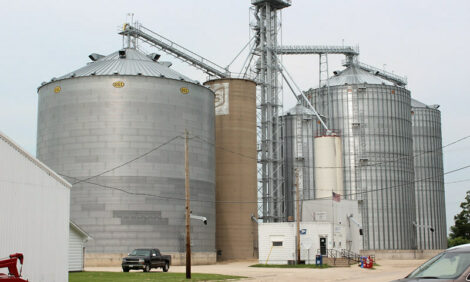



PED Virus Hits US Pork Exports
US - The spread of Porcine Epidemic Diarrhoea (PED) virus that kills young piglets is taking its toll on the US pork industry and could have negative implications for global pork consumption, according to an official with the National Pork Producers Council (NPPC).Dave Warner, director of communications for the NPPC, said the emergence of the porcine epidemic diarrhea virus (PEDV) "makes it hard to plan" and has left a lot of producers in the US - the world's leading exporter of pork - in a compromising situation.
"Given that mortality for piglets in a barn that has PED is up to 100 per cent, I imagine we're going to see a reduction in the slaughter at least for a good portion of 2014," Mr Warner told China Daily. "It's certainly an issue for the hog farmers but with cases now in Canada, the uncertainty of the PED virus is a concern."
Though the virus poses no threat to human health or food safety, it has resulted in the deaths of thousands of piglets since it appeared in the US. PEDV, which can cause diarrhea, vomiting and severe dehydration in young pigs, was first confirmed in the US in May.
The Wall Street Journal reported that following the first week in January, 2084 separate positive cases of PEDV in 22 states have been reported to the National Animal Health Laboratory Network.
According to the Iowa Pork Industry Center, the mortality rate for piglets infected with PEDV can be in the 30 to 100 per cent range.
The impact on specific pork producers and processors in the US and China remains to be seen, but Robert W. Manly - executive vice-president and chief synergy officer of Smithfield Foods, Inc - has acknowledged that PEDV "is an industry-wide issue".
"There are still many theories as to how it is transmitted, but our emphasis is on control through biosecurity," Manly said during a company conference call in Dec. "Based on industry numbers of current infected herds, the potential impact could translate to a loss of industry pig production of two million to three million head, or two to three per cent."
Smithfield Foods, the largest producer and processor of pork in the US, was bought out in September for $4.7 billion by Shuanghui (now WH Group Ltd), a Hong Kong listed meat producer with holdings in a number of food enterprises.
John Payne, a senior market analyst with Daniels AG Services in Chicago, said PEDV has created "another hurdle" for US producers to overcome "just to meet demand".
"Farmers are having a harder time producing the amount they need to produce in the short term just to get expansion growing," Dr Payne said Monday in an interview with China Daily. "These guys haven't been producing at the rate they did five years ago, and now that the economy can afford to, farmers can't seem to get ahead of the pace."
Dr Payne added that Smithfield's recent deal with the WH Group could have an impact on the company's ability to weather the recent uptick in the price of pork products.
"If you've got a good business, the last five years have been tough," Dr Payne told China Daily. "Smithfield doesn't have to deal with that because they have fresh capital. With this new virus, plans might be delayed a little bit."
China's imports of US pork in 2012 totaled just over 430,000 metric tons - an equivalent value of more than $800 million - making China the third-leading export market for US pork.








